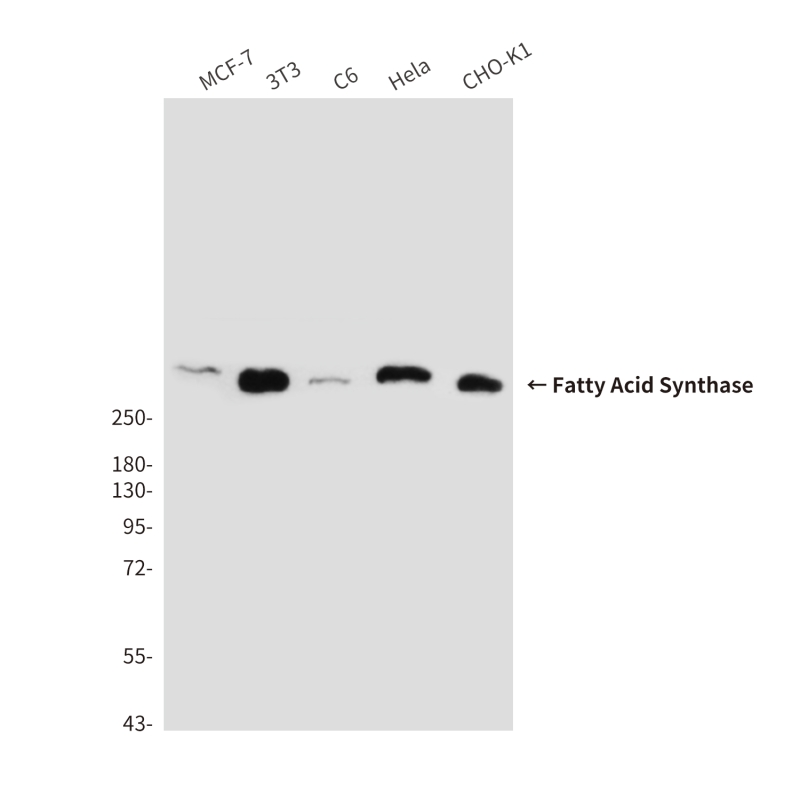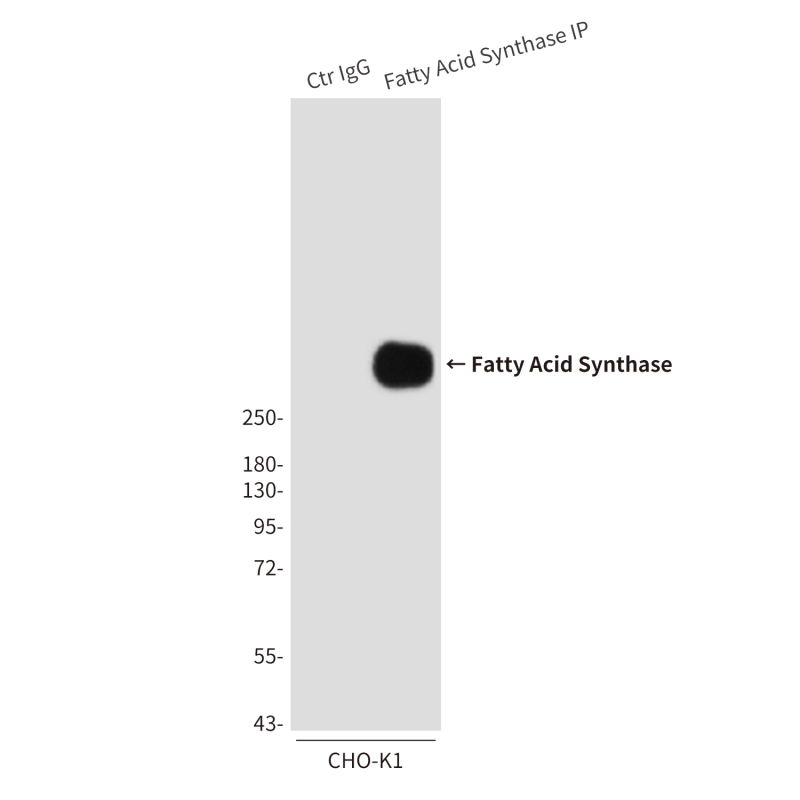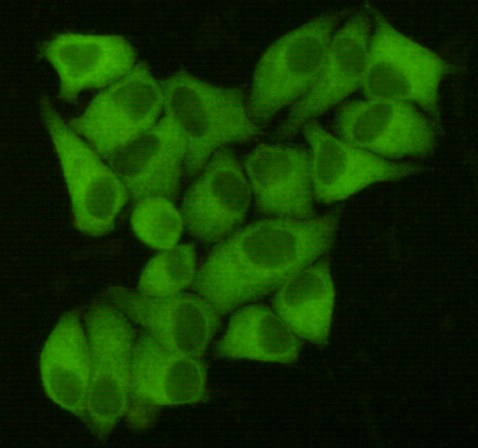


| WB | 咨询技术 | Human,Mouse,Rat |
| IF | 1/20 | Human,Mouse,Rat |
| IHC | 咨询技术 | Human,Mouse,Rat |
| ICC | 1/50-1/200 | Human,Mouse,Rat |
| FCM | 咨询技术 | Human,Mouse,Rat |
| Elisa | 咨询技术 | Human,Mouse,Rat |
| Aliases | FASN; FAS; Fatty acid synthase |
| Entrez GeneID | 2194 |
| clone | 6A9 |
| WB Predicted band size | Calculated MW: 273 kDa; Observed MW: 273 kDa |
| Host/Isotype | Mouse IgG1 |
| Antibody Type | Primary antibody |
| Storage | Store at 4°C short term. Aliquot and store at -20°C long term. Avoid freeze/thaw cycles. |
| Species Reactivity | Human,Mouse,Rat,Monkey |
| Immunogen | A synthesized peptide derived from human Fatty Acid Synthase |
| Formulation | Purified antibody in PBS with 0.05% sodium azide,0.5%BSA and 50% glycerol. |
+ +
以下是3篇关于Fatty Acid Synthase(FASN)抗体的参考文献摘要:
1. **"A highly specific monoclonal antibody for fatty acid synthase (FASN) in human tissues"**
- **作者**: Smith et al.
- **摘要**: 该研究开发并验证了一种高特异性的FASN单克隆抗体,通过免疫组化(IHC)和Western blot技术,证实其在检测人类乳腺癌、前列腺癌等多种癌症组织中FASN蛋白过表达的有效性。
2. **"Validation of anti-FASN antibodies for metabolic studies in murine models"**
- **作者**: Brown & Cravatt
- **摘要**: 本文系统评估了多种商业化FASN抗体在小鼠肝脏和脂肪组织中的适用性,确认了部分抗体在免疫沉淀(IP)和免疫荧光(IF)中的特异性,为代谢疾病研究提供可靠工具。
3. **"Fatty acid synthase expression predicts poor prognosis in colorectal cancer"**
- **作者**: Chakravarthy et al.
- **摘要**: 研究利用FASN抗体通过免疫组化分析结直肠癌组织,发现FASN高表达与患者生存率下降显著相关,提示其作为预后标志物的潜在价值。
4. **"Antibody-based inhibition of FASN suppresses tumor growth in xenograft models"**
- **作者**: Menendez & Lupu
- **摘要**: 通过靶向FASN的抗体抑制其活性,实验显示在乳腺癌异种移植模型中显著减少肿瘤生长,揭示了FASN作为治疗靶点的可行性。
这些文献覆盖了抗体开发、验证及在癌症机制与治疗中的应用场景。
×